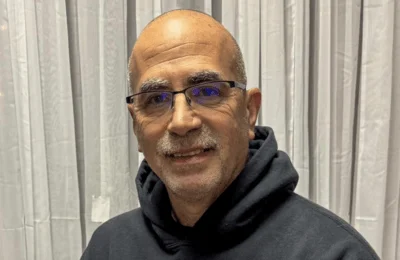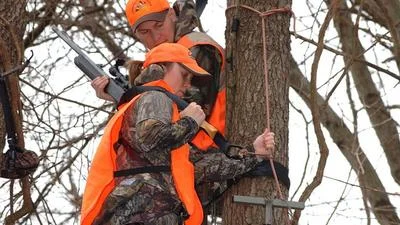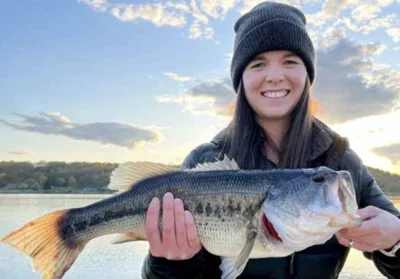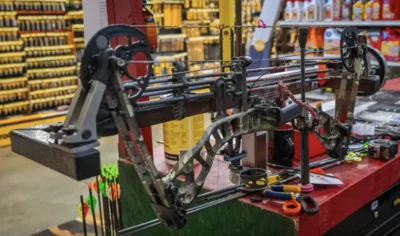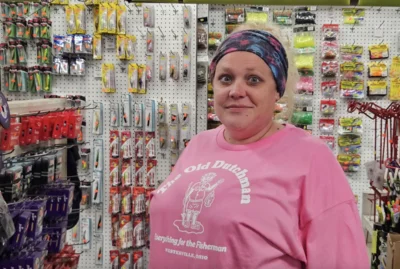Coyotes, considered a nuisance by many, are now the subject of intense management efforts in the state.
For many, coyote hunting is about more than just the hunt—it’s about managing a problem.
Brad Verhovec, a 31-year-old Utica-based coyote hunter has made it his mission to help local farmers, protect wildlife and take on one of the most difficult hunting challenges in the U.S.
Verhovec said that although he hunts deer, coyotes have become his main hunt.
“Coyotes have become my passion,” Verhovec told Mount Vernon News.
Coyotes are common across Ohio and can be found in both rural and urban areas, where they are most active at dawn and dusk.
The Ohio Department of Natural Resources has classified coyotes as a "nuisance" species.
Coyotes primarily hunt small mammals like rabbits and mice, but may also prey on small pets and livestock.
Hunters like Verhovec, play a key role in reducing their impact on livestock and local ecosystems.
“We have a couple of sheep farmers that have lost some sheep to them,” said Verhovec.“Haven't lost them since we started hunting their property. My brother's got a couple of cattle that have been attacked and we take care of those. I got probably a dozen farmers that just call me and we go over and do what we can to take care of them.”
Unlike most hunts, coyote hunting is not confined to a short season.
“Coyote season is year long,” said Verhovec. “The hardest thing about it is just with the crops here in Ohio, you can only hunt until those beans get about knee high. Once the beans get about knee high then you are shut down unless you're hunting hay fields which we do throughout the summertime when they cut the hay fields.”
Verhovec said that coyote hunting shifts as the seasons change.
"After the crops come off until March when they den up because they're pregnant, it gets pretty difficult,” he said. “And then we go after them again in June and July, when the pups start running in their hay fields and stuff."
Coyotes are notoriously difficult to hunt. With sharp instincts and sensory capabilities far beyond that of the average hunter, they present a unique challenge even for the most experienced.
“You're hunting an animal that is really smart,” he said. “They've got the vision of a turkey, but the hearing of a deer and nose ten times stronger than a deer. So it's the hardest thing that I've ever hunted before.”
Despite the difficulties, Verhovec has grown to love the challenge.
Verhovec's involvement in coyote hunting spans nine years, over which time he has developed a nuanced understanding of the elusive animals and the challenges they pose.
"When we just got started, we’d just go out there and kind of be young and dumb and just sit there on a field in chairs and call a rabbit for an hour or two until something dumb ran in," he recalled.
Over the years, Verhovec has honed his skills, learning how to communicate with coyotes—a skill that has made him one of the best hunters in the area.
"I still go out a couple of hours a week and just listen to the coyotes on the road and see how they're howling back and forth,” he said. “If they yodel howl, what that means. Or what an invitation howl sounds like. What a male versus a female sounds like. Learning to communicate with them has been the biggest advantage that I've learned over that time."
Verhovec’s understanding of coyote behavior is rooted in careful observation and trial and error.
"It’s just like anything else you hunt,” he said. “Turkeys will take a certain path, deer will have certain tendencies with the wind and with the weather. It’s just coming down to learning their tendencies and how to be vocal with them and what to play, what time of year."
In the world of coyote hunting, having the right equipment is crucial. Verhovec utilizes high-tech equipment to give him the edge he needs.
"Right now we run thermal scopes. I run a 22-250 bolt action rifle on an MTD chassis fatboy tripod. It gets pretty intense," he said. "A thermal scopes bolt action rifle AR platform rifles anywhere from 22-250 to a .43 to a 6mm ARC—anywhere in those kinds of calibers. You don’t want to run anything too heavy, but not too light either."
Over the years, Verhovec has invested in top-of-the-line equipment, though he still keeps things relatively simple compared to some of the more heavily sponsored coyote hunters.
For Verhovec, coyote hunting is not just a solitary pursuit but a family affair. His 11-year-old son has started to show an interest in the sport.
“My oldest, 11-year-old, is starting to go out with me more and more,” he said. “So hopefully we’ll be able to get him on his first one here soon."
He recommends coyote hunting to others as well.
"I definitely recommend it to everybody and just make sure you study it before you get out and do it," he said. "But if you just go out and wing it, you’re doing a disservice to every other coyote hunter who’s actually put in the time to learn how."
Verhovec also has a message for landowners who might be hesitant to allow hunters onto their properties.
"To landowners, don’t be shy to let coyote hunters come on. Make sure you do your due diligence and talk with them and stuff and know what they’re doing," he said. "But at the end of the day, we’re not just helping your livestock. We’re helping all the other hunters and children getting into deer hunting and turkey hunting and all that. So it’s not just for us as it is for everybody else coming up there."
Verhovec and his crew host monthly coyote hunting tournaments from November to March.
The tournaments are designed to reward participants.
"We pay up to the top two. If we’re under ten teams, if we’re over ten teams, we pay our top three and then we have side pots for big and small coyotes,” he said. “So you win it with the most amount of dogs. If we have a tie, the biggest dog wins it.”
Verhovec’s tournaments are limited to amateurs.
Since launching the monthly coyote hunting tournaments, Verhovec has made it his mission to provide a level playing field for all hunters, regardless of their experience or financial backing.
The tournaments are structured to ensure that everyone has a fair shot, particularly by excluding pro and field staff teams, who often have access to advanced technology and bigger budgets.
"It’s open to whoever would like to [join]," Verhovec said. "The only thing that we limit is we don’t allow pro and field staff teams. The teams that are running $50,000 equipment, we can’t compete with them."
Winners receive free entry into future events, while runner-ups enjoy a 50% discount on their next tournament entry.
“We want to give everybody who’s just like us a chance to compete,” he said.
Those interested in joining coyote hunting tournaments hosted by Verhovec can reach him via phone at (614) 354-5371 or via the “Verhovec's Coyote Tournament” Facebook page.
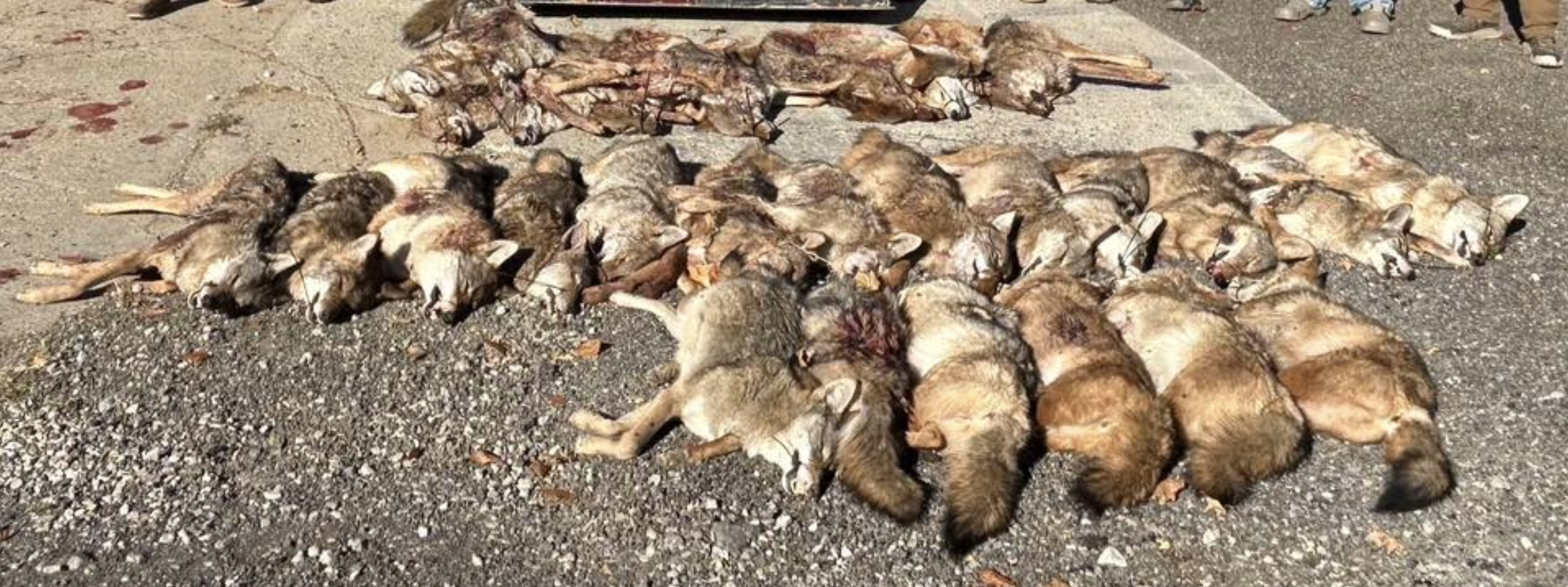
Results of a recent Verhovec's Coyote Tournament. (Facebook / Verhovec's Coyote Tournament)



